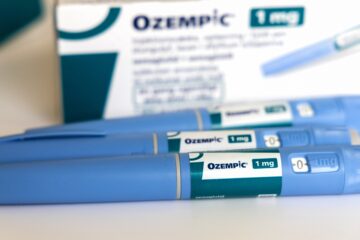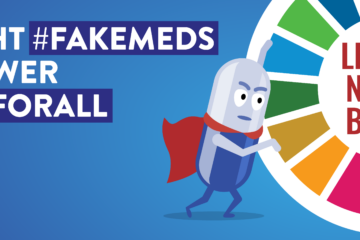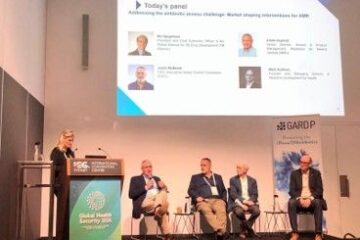We support and echo the statements delivered by our members on key agenda item 7. Substandard and falsified medical products (EB152/7) at the 152nd Executive Board Meeting of the World Health Organization.
No more room for error – Stepping up the fight against substandard and fake medical products is urgent! Read the statements below.
152nd EB Individual Statements
This statement is supported by the Fight the Fakes Alliance. We applaud the Director-General for his report and welcome the World Health Organization’s recent call to action urging countries to protect children from contaminated medicines.
Falsified and substandard medicines are a threat to patients’ well-being and a burden for health systems. Safe and high-quality medical products and medicines are a cornerstone to achieving Sustainable Development Goal 3.8 on Universal Health Coverage.
Falsified and substandard cardiovascular drugs can lead to unnecessary complications, hospitalizations, and deaths. As such, we urge Member States as well as relevant stakeholders to collaborate and ensure access to safe, effective, affordable, and high-quality medicines for everyone everywhere.
Lastly, we hope that the above sentiment will also be reflected in the UHC agenda. Thank you.
152nd EB Individual Statements
Thank you for the opportunity to speak on behalf of the United States Pharmacopeial Convention (USP), an independent, scientific nonprofit organization focused on building trust in the supply of safe, quality medicines.
Poor quality medicines, like cough syrup contaminated with diethylene glycol (DEG), put lives at risk, cost economies billions of dollars, and undermine decades of hard-earned global health progress.
The recent tragedies in the Gambia, Indonesia, and Uzbekistan underscore the urgency for all WHO Member States to appropriately fund and resource their regulators to best position them to detect, prevent and respond to dangerous products, such as those containing DEG.
Traditionally, quality assurance has focused on end-product testing but given the complex global pharmaceutical supply chain, there is a clear need for greater regulatory focus on quality controls for raw materials. Pharmaceutical ingredient testing requirements and resources vary widely across WHO Member States. Expanding quality testing to the upstream supply chain would help regulators detect adulterated products and allow for a rapid response in times of crisis.
To help the global community put an end to preventable deaths due to DEG contamination, USP is pleased to make a virtual toolkit for measuring and controlling levels of DEG available as a free resource to all interested stakeholders. The toolkit includes relevant chapters, monographs, and other resources.
152nd EB Individual Statements
IPSF, IFPMA and IAPO, thank you for the opportunity to make this statement.
We agree and support the draft list of prioritized activities to implement the workplan of the Member State mechanism for the period 2022–2023. In particular the objective to strengthen the capacity of national/regional regulatory authorities for the prevention and detection of, and response to, substandard and falsified medical products.
The African Medicines Agency (AMA) creates an unprecedented opportunity for improved regulatory reliance and strengthening resulting in improved security of supply chains to better fight against substandard and falsified medicines.
The WHO estimated that 42 percent of all fake medicines reported to the WHO from 2013 to 2017 came from Africa.
A strong unified and coordinated regulatory system would greatly contribute to combating falsified and substandard medicinal products on the African continent by means of enhanced market surveillance, centralised information collection and sharing of data between countries.
We believe it is critical to operationalize the African Medicines Agency.This new agency is an integral part of the WHO Global Patient Safety Plan 2020-2030 and its implementation should go hand in hand with awareness raising, political engagement and health system strengthening initiatives.


